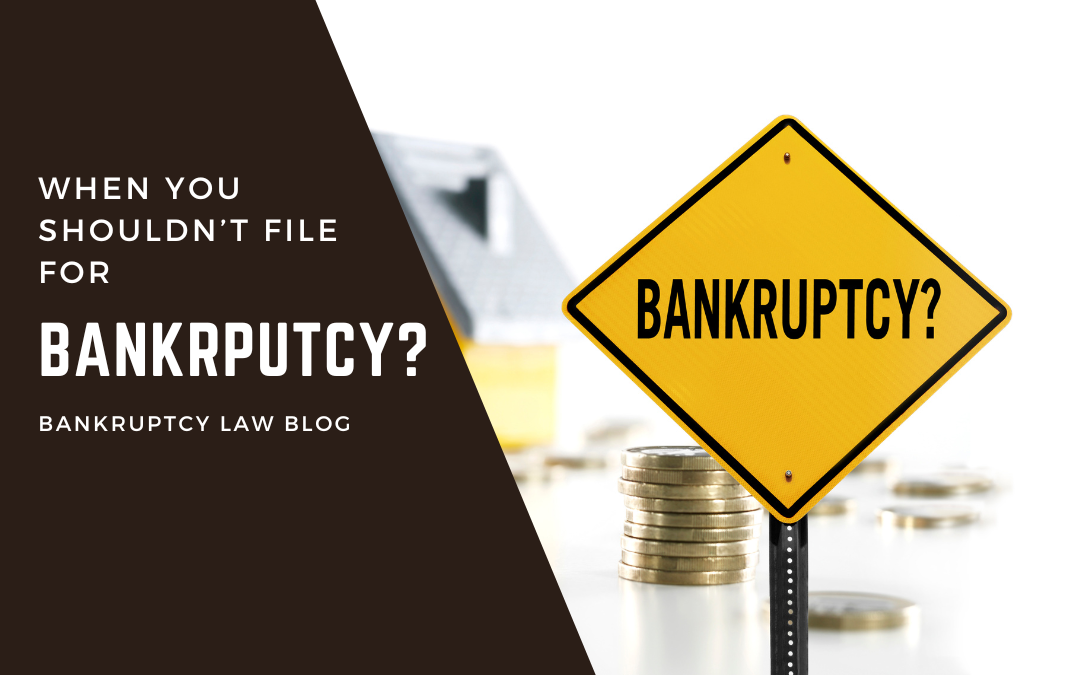Filing for bankruptcy shouldn’t be the first option considered when you’re faced with significant debts.
Before filing, you’ll want to explore other options like debt consolidation or negotiation.
Additionally, bankruptcy doesn’t solve all financial situations or discharge all types of debt, like private student loans. So before filing, you’ll want to make sure that bankruptcy will help with your specific situation.
Here are some scenarios or reasons why you shouldn’t file for bankruptcy.
Transferred assets
You’ve recently transferred property, vehicles, or other major assets to a relative or friend, such as within the last few months.
Filing soon after making these types of transfers can result in negative consequences, such as bringing up questions of potential bankruptcy fraud, potentially jeopardizing your bankruptcy case, or having a trustee reverse the transferred assets. In this situation, you’ll want to wait before considering filing.
Student loans
Student loans are your only source of debt that you want to discharge.
While some federal student loans can be discharged, it isn’t easy, especially if you’re employed. Plus, you may have other options that won’t carry the consequences of bankruptcy.
Temporary situation
Your situation is temporary, and you know that your financial prospects will be improving soon.
In this case, you may want to wait and see if your new or higher income will be sufficient to help you repay your debt.
Taxes are your main source of debt. Many types of taxes can’t be discharged through bankruptcy. Additionally, the taxes typically must be at least three years old to qualify.
Risk of losing assets
You’re at high risk of losing assets if you file for bankruptcy.
Exemption laws for assets vary per state. So if you have certain assets you don’t want to lose, like your home or car, you may want to talk with a bankruptcy attorney to see if those assets are exempt or not.
Repayment plan
You haven’t yet attempted negotiation or debt consolidation options.
Sometimes creditors will work with you to negotiate a repayment plan or even excuse you from some of the debt. This approach can allow you to avoid filing for bankruptcy, get out from under your debts, and the creditor will receive at least some of the debt owed.

